Facing an early death, a CEO created a 'digital twin' of his body. It transformed his health.
Twin Health uses a "digital twin" to counsel patients with type 2 diabetes or obesity.
A 66-year-old CEO says the program changed his life and put his disease in remission.
The "twin" is really an app, with personalized recommendations for diet, exercise, and sleep.
Three years ago, Devlin Donaldson was preparing for an early death.
The busy CEO of a nonprofit had suffered a stroke in 2018. That's how he discovered he'd already been living with type 2 diabetes for years.
After his diagnosis, things didn't change much. Despite bouncing around from medication to medication, and listening to "uninspiring" diet advice from a nutritionist, his health was not improving, and his blood sugar was out of control.
"Every time I went to my doctor, it was like, 'well, that's not working,' here's another prescription, here's another prescription," Donaldson told Business Insider. "At some point, I just sort of lost hope, and I said, 'Forget it. I'm just going to die young.'"
So he was pretty skeptical when he signed up to try out a digital "twin" designed to improve his condition and help him slash his stack of medications.
Ultimately, a digital twin is just an app full of advice on how to eat and move.
But, Donaldson said, the personalized insights transformed his understanding of his body, and the challenges he faced. Three years later, his diabetes is in remission.
'Digital twin' tech is a fast-growing type of precision medicine
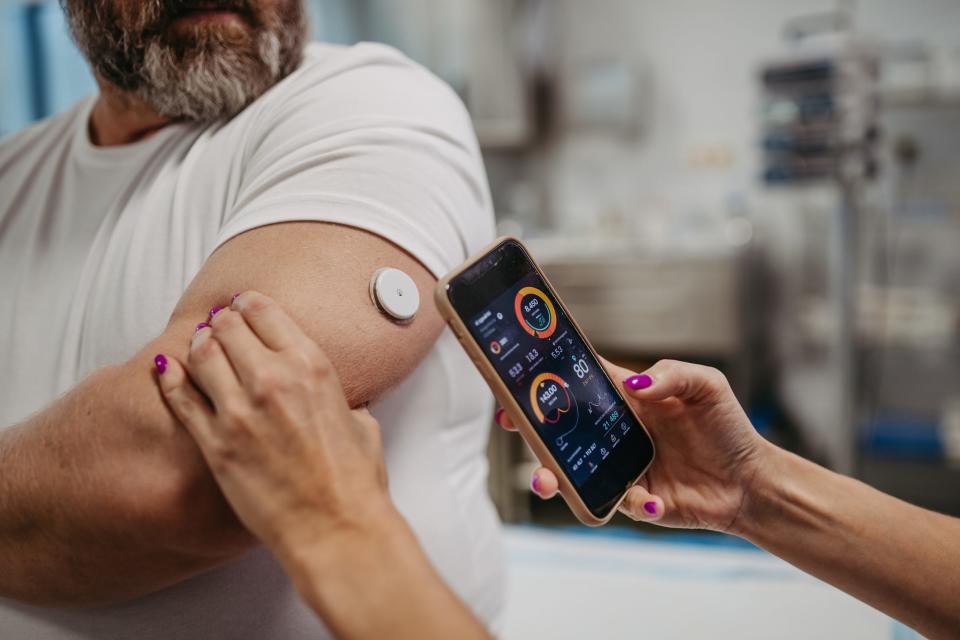
Digital twins in healthcare are being used at longevity clinics and in hospitals. They can track a patient's health over time, suggesting personalized interventions. The goal is to optimize treatment plans, making them more compatible with each person's unique preferences and biology. It's a type of precision medicine that's growing fast.
Donaldson was one of the first customers at Twin Health. Twin Health is the only company that leverages digital twin AI for diabetes "reversal" — or, as doctors prefer to say, "remission." Competitors like Virta Health and Omada don't place as much emphasis on individualizing their diabetes reversal advice.
Donaldson was a reluctant participant in the program at first. "I wasn't super enthusiastic," he said. "I didn't want to get my hopes up."
But since it was free — paid for through his employer's healthcare plan — he tried it out. (Some employers require patients with diabetes to use Twin to get their prescriptions covered.)
Plus, he couldn't help feeling at least a little intrigued by Twin's promise of healing. This wasn't about managing his disease; they were going to try to get rid of his diabetes, or so they said.
"My understanding was diabetes was something you lived with for your whole life," he said. "Once you got it, you had it."
Twin sent a box to his home that included a digital scale, a blood pressure cuff, a smartwatch, and a continuous glucose monitor (CGM) to track how different foods and activities impacted his blood sugar levels throughout the day. Then his "twin" settled in and got to work, noticing patterns in his routines and measuring his health.
Working with the 'twin' involves logging food, and getting regular exercise
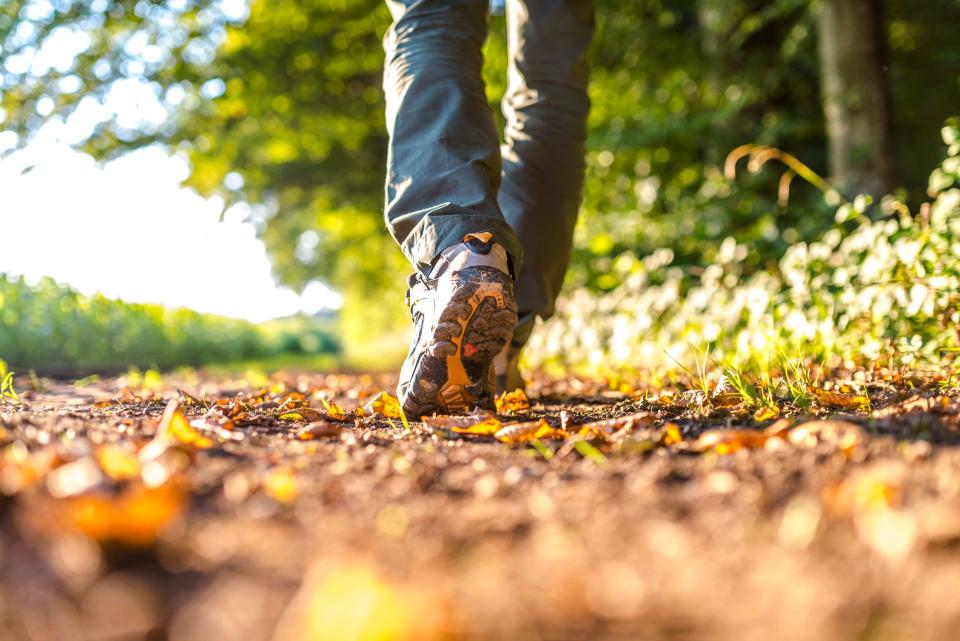
Calling it a twin is a bit of a misnomer, really. Donaldson says his "twin" is much more like a dashboard he can check to get advice about which foods are best to eat when, or how he's doing with his steps goal. It also monitors his medications, glucose levels, and blood pressure.
He manually enters everything he eats, which is arduous but enlightening, he said. If his blood sugar starts going up, he's noticed that getting out for a walk can help bring it back down. He knows his body reacts better when he starts eating his veggies before the protein in a meal, feeding his stomach a base of some fiber.
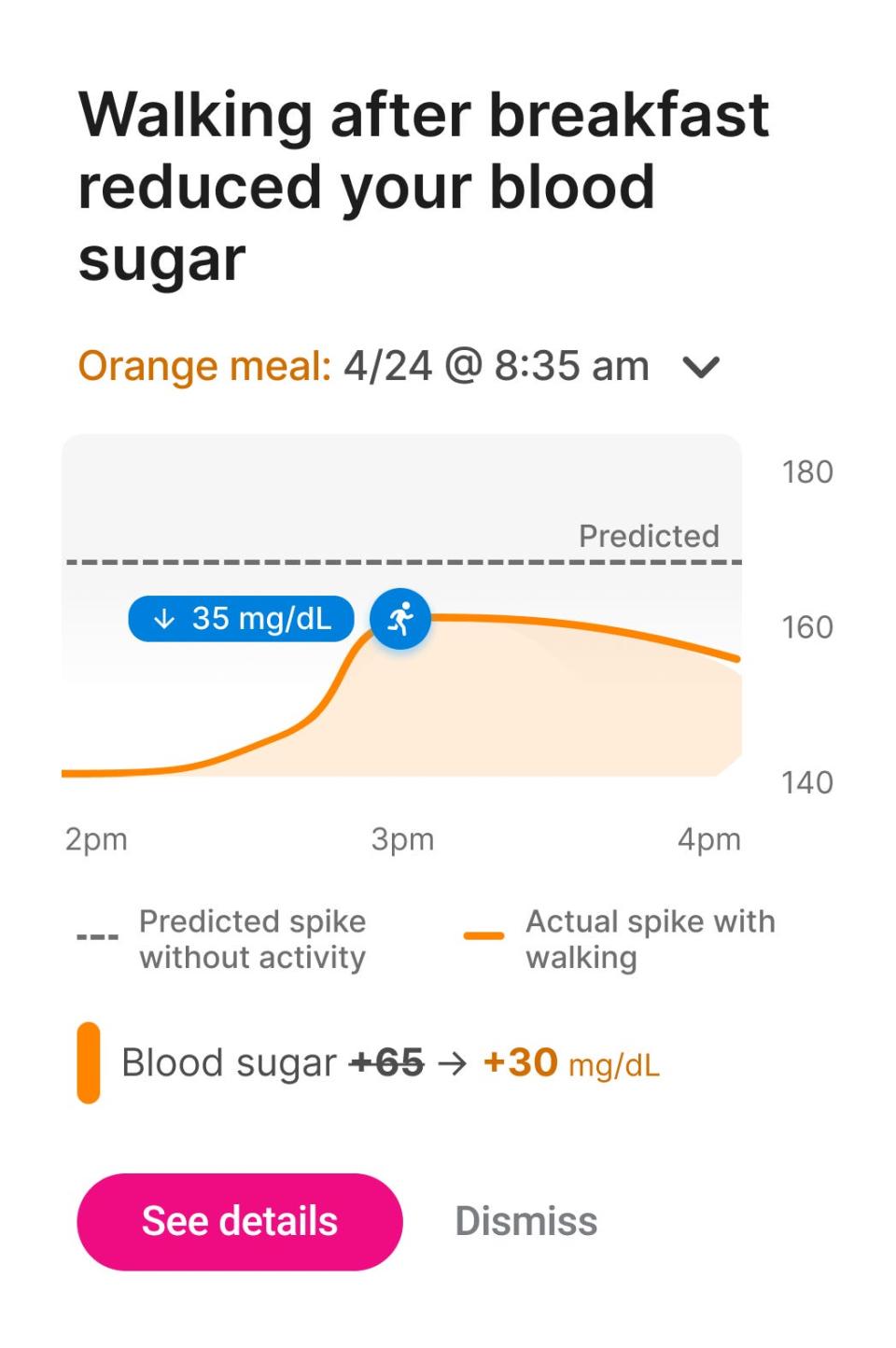
"It becomes very much about my body," he said. "All of my information goes in and it talks to me like a smarter version of myself saying, 'you ate this, this was really good. You ate this, this was really bad.' And it begins to give me this feedback cycle."
Registered dietician Nicola Guess, who studies the prevention and management of type 2 diabetes at Oxford University, and who is not involved with Twin, said she was "pleasantly surprised" with how the system works.
"This is where tech can be so useful," Guess said. While she's generally not a fan of people with normal blood sugar using CGMs (because there's very little the CGM can tell us about the metabolic health of non-diabetic patients) she said the way Donaldson uses his CGM makes a lot of sense.
"It is true: if you have type 2 diabetes, your excursions, your glucose can cause you to go blind," she said. "If people feel empowered by being able to real-time check on what that is, I get that completely."
It's more than what an Apple Watch or a Fitbit would do. In addition to data from the CGM, there are regular blood pressure cuff readings and the bathroom scale measures his body composition. Donaldson can also ask his Twin questions while he's on the go, like when he showed up to a work event where they were only serving pasta.
"What do I do?" he asked Twin.
"Enjoy it" was the response he received on his phone a short time later.
"One thing is not going to be the end of you," he realized.
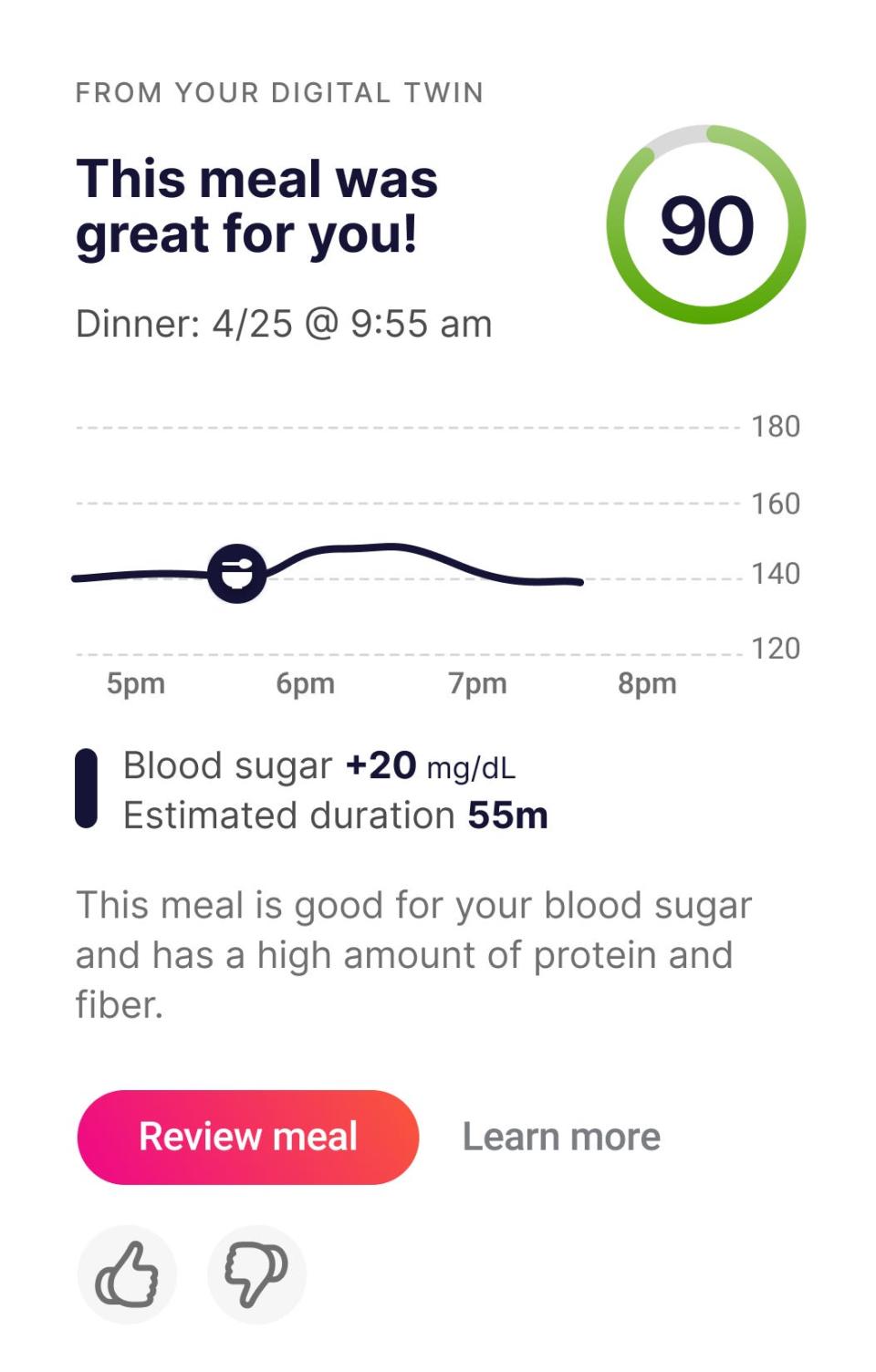
Healthcare that's free until you get results
Twin's outcome-based payment system is a "brilliant" healthcare model, Guess said. Sometimes called "value-based" healthcare, this new approach requires a company like Twin to actually improve a patient's wellbeing — by improving their blood sugar or propelling weight loss, for example — before they can charge the employer.
"The onus is on a company not to produce something that looks good, it has to be good," Guess said.
The sector is growing fast, too — with investments in value-based care companies far outpacing hospital construction spending, per McKinsey & Company.
Guess said while "most of what we know about what diet can do" for type 2 diabetes is well established, the app is still a nice way to bring it all home for people in an approachable way. (Though she tends to recommend a more Mediterranean-style diet over low-carb plans.)
Donaldson lost more than 40 pounds, and improved "all the numbers" including cholesterol
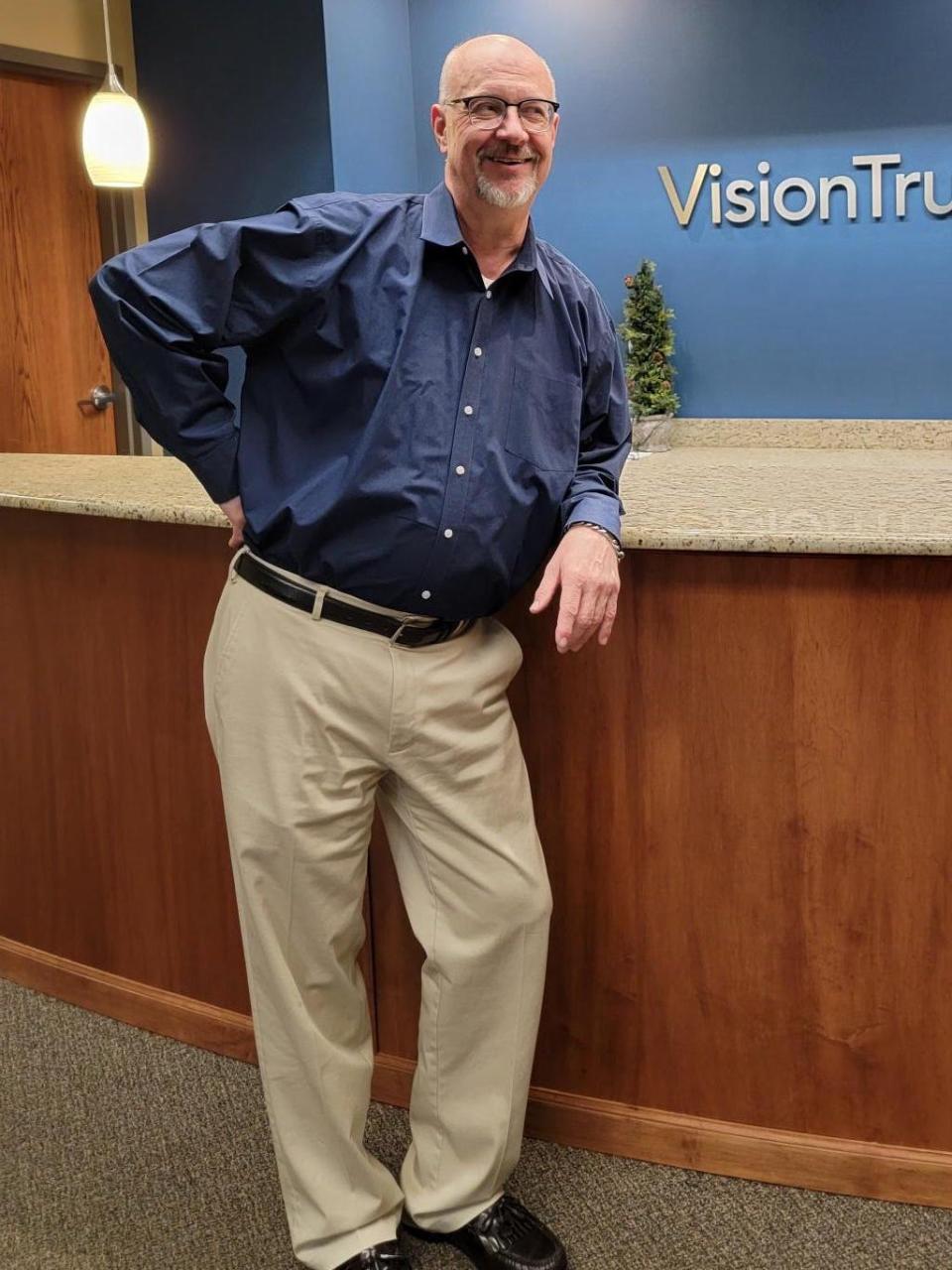
Within a month, Donaldson was hooked.
"That constant, real-time feedback, it becomes addictive," he said. "I think it's the future of a big section of medicine for people to learn how to live healthy."
His twin was giving him new ideas for which foods to eat and when. He started eating more nuts for snacks and vegetables at meals, bumping up his fiber intake. At home, Twin recommended he make a chicken avocado salad with mustard dressing, or some salsa verde carnitas.
"It makes me eat a lot more naturally," he said. Fewer canned goods, more fresh veggies and satiating protein instead. "Our world is not trying to help us stay healthy. And what my twin does is help me figure out how to navigate the world in a healthy way."
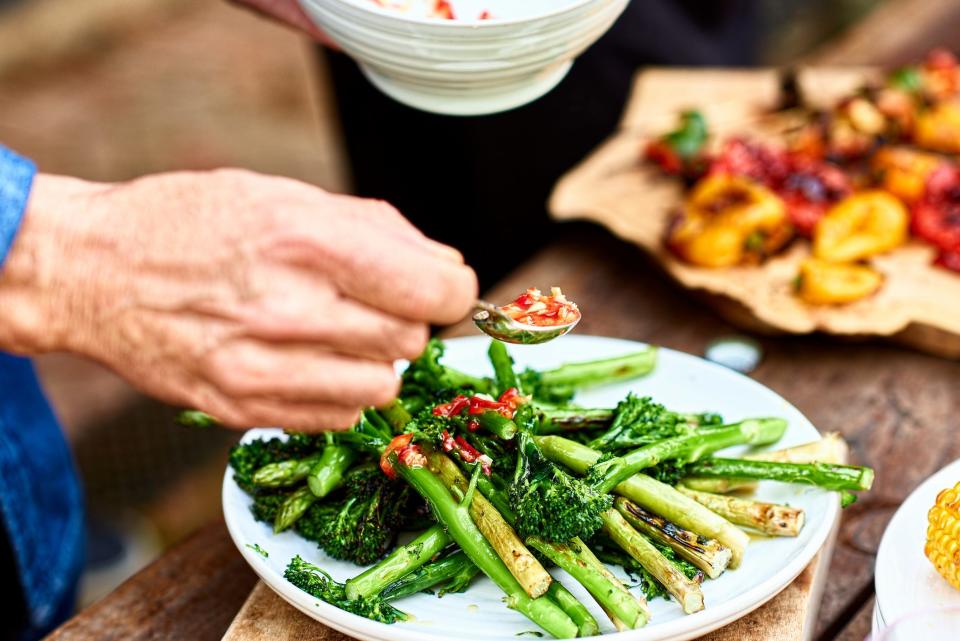
His twin also made him realize he needed to make sleep a far bigger priority in his life.
"You know you need to get sleep to feel good, but sleep is so important," he said. Watching his sleep trends gathered in the smartwatch provided by Twin, he noticed "when I started sleeping better, I started losing more weight."
"Within six months, I went to 200 pounds — bang!" he said. "My good cholesterol went up, my bad cholesterol came down, my triglycerides came down, my inflammation scores all dropped. I mean, all the numbers went in the right directions so quickly."
His twin also encouraged him to drink a little bit of apple cider vinegar each day, and take a multivitamin. These were the Twin recommendations that Guess didn't think were as great, especially the vitamin.
"Multivitamins aren't a good idea if you don't need them," she said. "The idea that more vitamins and minerals is better is false."
"It's kind of weird," she said. "They're doing all of this data collection to really give precise information and it's like, 'Bam! We're going to give everyone a multivitamin."
The Twin is geared to get patients off medications and ditch their CGM — saving employers money
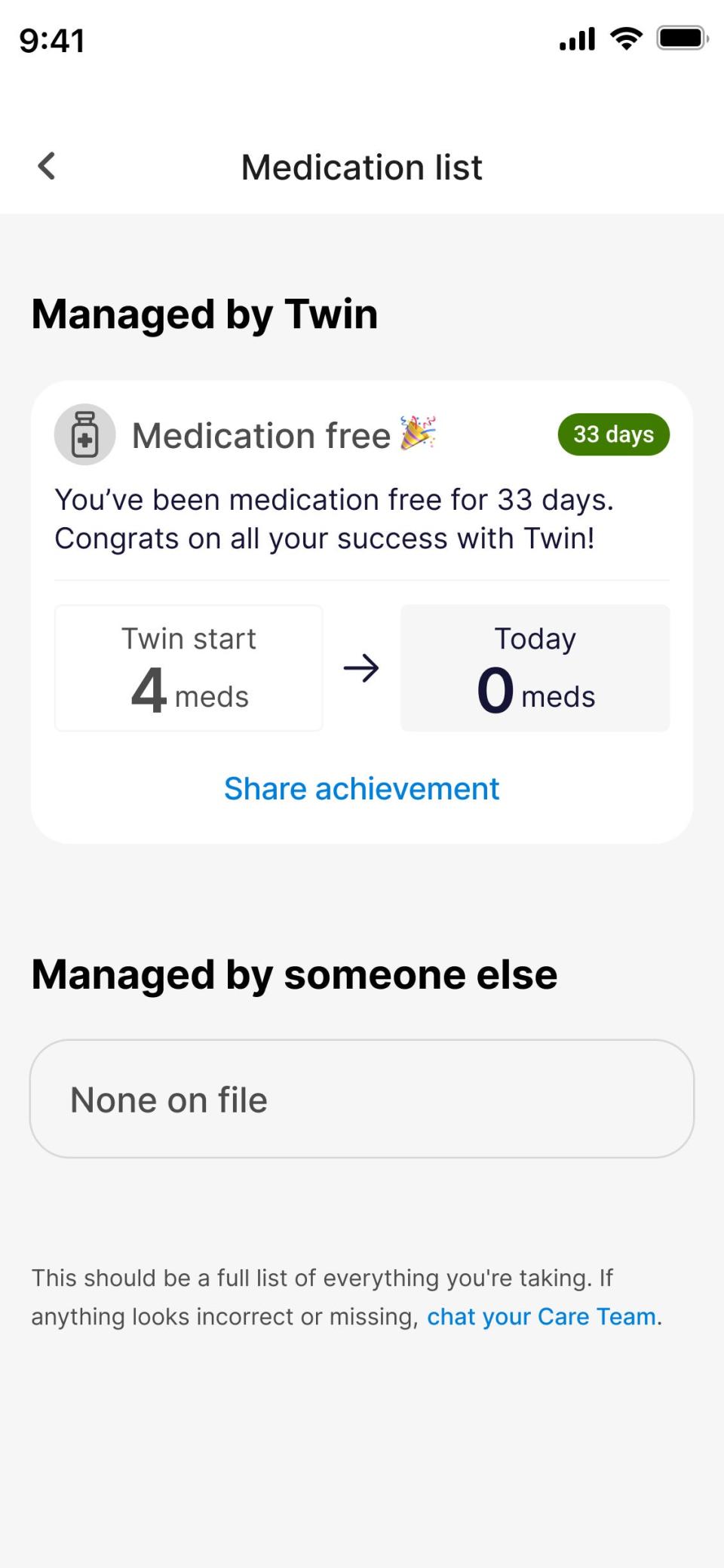
Soon, Donaldson's diabetes was in remission. He quit taking Ozempic and other diabetes medications like Januvia and Farxiga, and he's dropped from size 44 pants when he started the program to size 34 today, eliminating some of the dangerous visceral fat that sits around the waistline.
"I became very passionate about it because I saw results so quickly," he said.
Seeing how restoration, movement, and nutrition all work together sparked a "radical life change."
Though he says he has had some recent health issues that have pushed him back on the cheap diabetes pill metformin, he thinks within a month or two he'll be able to go medication-free again. His weight has also crept up about 20 pounds, but he's feeling confident he can lose about 10 of those again and then maintain a stable weight.
"What they've taught me is everybody screws up, but now you know what to do to be healthy again," he said. "I think I got into a really weird mental place with the disease, but the twin gave me hope, the hope got me committed, and that actually gave me life."
Read the original article on Business Insider


